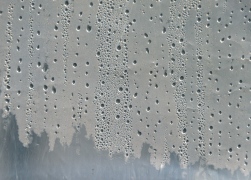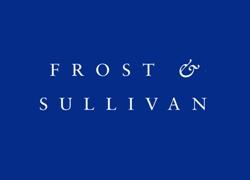Frost & Sullivan brings in new and combined sensors with real time and continuous monitoring

The need for optimal safety, high yield, and combustion value to ensure process integrity is spurring double-digit growth and adoption of humidity and moisture sensors.
Maintaining correct moisture ratios stimulates higher yields in chemical and petrochemical industry sectors, while the control of moisture levels in fuel gases and fuel oils helps ensure required combustion values and avoids explosive reactions.
Humidity & moisture sensors are based on eleven different contact and non-contact technologies which are application dependent. However, the absence of a single technology with multiphase application capability, and a lack of common standards are hindering market growth.
“The main competitors are from the automation and instrument manufacturing sectors. Market leaders are all industrial process automation and control device manufacturing companies. Early adopter GE and its subsidiaries dominate the humidity and moisture sensors market with emerging tunable diode laser (TDLAS) non-contact technology,” said Frost & Sullivan Measurement & Instrumentation Industry principal Dr. Rajender Thusu. “Other innovative companies, such as Silicon Laboratories, BAPI, TRANE, Honeywell, Amprobe, and Delmhorst Instrument Co, have developed a large range of humidity, moisture and temperature combination sensors.”
Global Humidity and Moisture Sensors Market, Forecast to 2023, recent analysis from Frost & Sullivan’s Test & Measurement Growth Partnership Subscription, finds that the global humidity and moisture sensors market is expected to grow at a compound annual growth rate of 11.7% from 2016 to 2023.
The research analyses current and future technologies and trends in the global humidity and moisture sensors market for diverse process and discrete applications. The market analysis is segmented by process and non-process industry end users and product types.
From a regional perspective, North America dominates the total humidity and moisture sensors market, while competition in Europe is much stronger. Revenues in emerging industrial countries such as China, India, Latin America and East Europe will be boosted by the installation of humidity & moisture sensor monitoring systems in new plants and upgrades in existing plants.
Key trends and developments in the global humidity and moisture sensors market include:
- Strong demand from chemicals and petrochemicals, pharmaceuticals, heating, ventilation and air condition, oil and gas, food and beverages, and clean room verticals, as well as attractive potential in the automotive and consumer spaces;
- Older technologies like chilled/cooled mirror, aluminum oxide (ALO), and infrared dominate the market due to their cost efficiency;
- Growth of TDLAS based humidity & moisture sensors is restricted due to its high prices;
- Portability and small product format driving demand for handheld humidity and moisture sensors within the test application sector;
- Growth of direct sales channels and online channels at the expense of distributors and other routes to market.
“Manufacturers’ investment in research and development of new and combined humidity and moisture sensors with real-time and continuous monitoring beyond temperature and pH will increase market penetration and growth,” noted Dr. Thusu.
Click here for more information.
Comment on this article below or via Twitter @IoTGN
